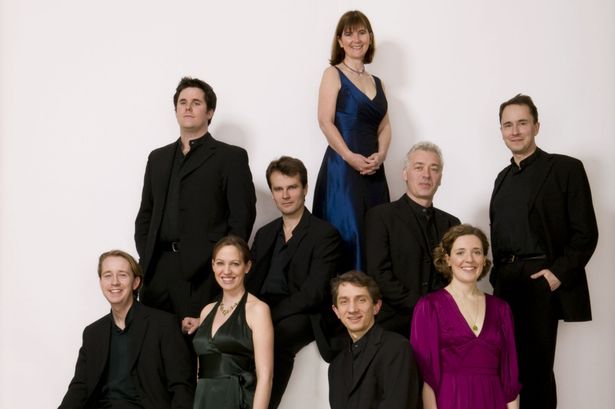
HURRAH! Live music is back. There was tangible hope in the air on this lovely summer evening, as Robert Hollingworth’s crack vocal group I Fagiolini returned to the fray in front of an eager audience (albeit socially distanced and masked), promoted by the University of York.
We must be grateful for the efforts of many musicians who have toiled to stream concerts over the past year. But nothing beats the real thing, for performers and audiences alike.
Hollingworth’s programmes are always imaginative, not to say challenging, and this one was no exception. Au Naturel was inspired by the four-season canvases painted by Pieter Brueghel the Younger in 1624, in which peasants labour outdoors in the foreground and make merry in the mid-ground, against reassuring landscapes.
“The paintings are … a hymn to the majesty of nature in its whole and parts” in the words of Martin Kemp’s programme-note, and a timely reminder that nature needs our co-operation. The programme helpfully reprinted extracts from all four paintings, in full colour.
Autumn kicked off with Leighton’s setting of Hopkins’s God’s Grandeur, which celebrates nature’s powers of recovery after man’s mistreatments. Leighton observes all this, acerbic at first, then gradually gentler: the seven singers, uneven to start, settled into a smooth flow.
Rheinberger’s Evening Song offered soothing compensation. In total contrast was the Monégasque composer Léo Ferré’s scatty Chanson d’Automne, its anarchic fragments fluttering like falling leaves.
Winter was entirely dedicated to Ed Hughes’s Sun, New Moon and Women Shouting, a 10-minute setting of a Tom Lowenstein poem inspired by three dark winters among the Alaskan Inuits. The music, like the poem, does not gloss over the hardships, but finds solace in the moon when the sun fails to appear. A dialogue between male and female elders leads towards an upbeat ending. The composer was present to receive deserved applause.
The male singers removed their ties for Spring, which opened with sprightly seasonal madrigals by Monteverdi and Claude Le Jeune, the one springy and vivacious, the other more alive to Cupid’s darts among both mankind and animals, with a cheery refrain. Howells’s 1964 setting – his last secular part-song – of Bryan Guinness (2nd Baron Moyne), The summer is coming, beautifully captured the anticipation of springtime in Ireland.
And so to Summer itself, this time with jackets removed. Sumer is icumen in made the perfect start, timeless in its clarity. Schütz’s The heavens declare had terrific rhythmic zest. Janequin’s zany La Chasse was made more hilarious still by vivid gesticulations and a ‘galloping’ tutti, a tour de force to close an exhilarating evening.
Review by Martin Dreyer
